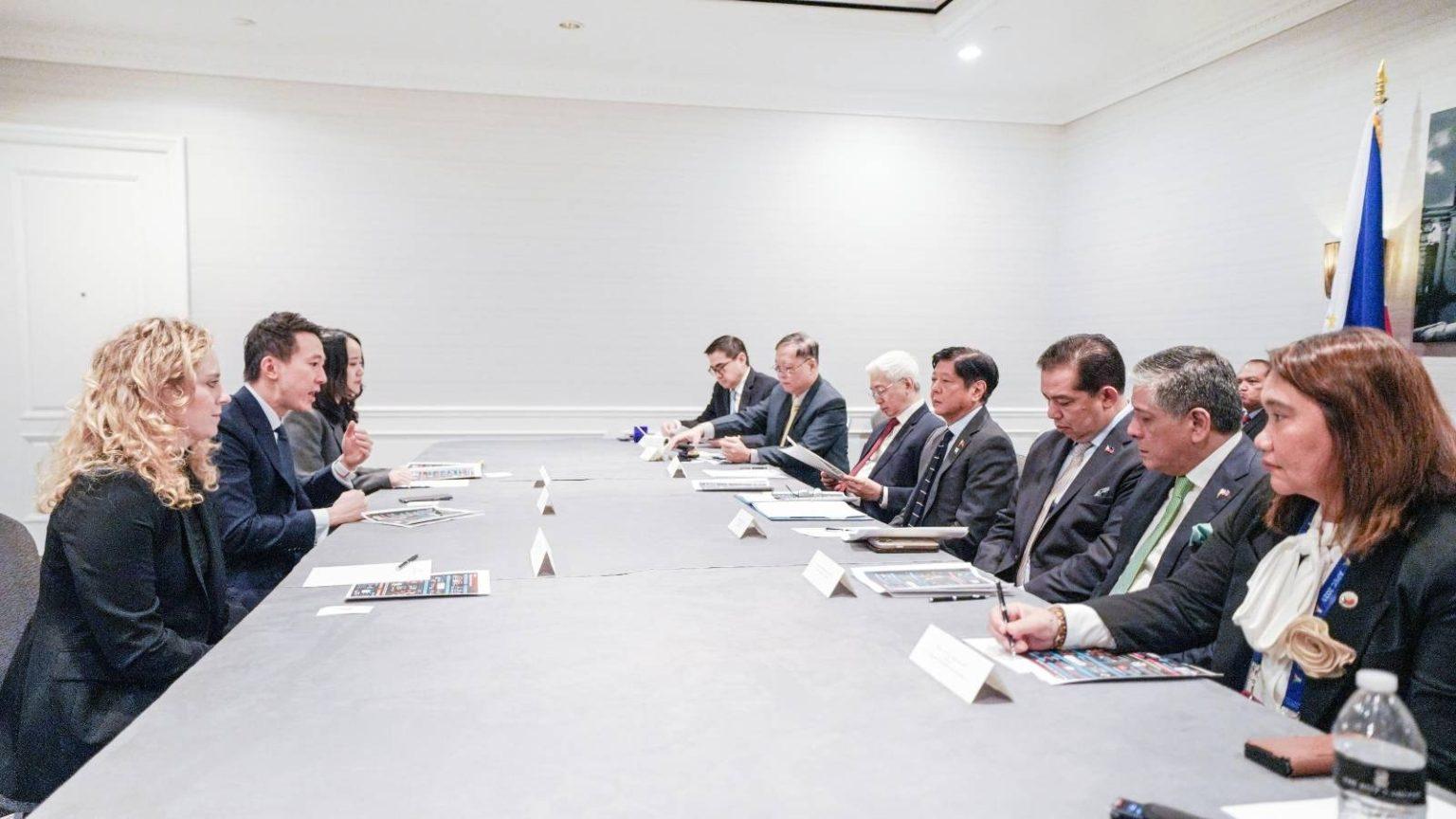Headline
PBBM, TikTok partner for ‘edutainment’ to promote MSMEs

FILE: President Ferdinand R. Marcos Jr. had set partnership with video hosting service Tiktok for “edutainment,” educational and entertainment to help small scale sellers and entrepreneurs, particularly with the country’s 50 million users. (PCO Photo)
MANILA – President Ferdinand R. Marcos Jr. and video hosting service TikTok have forged a partnership for “edutainment,” an educational and entertainment initiative aimed at helping micro, small and medium enterprises (MSMEs) in the Philippines.
This developed after Marcos met with TikTok officials on the sidelines of the Asia-Pacific Economic Cooperation (APEC) summit in San Francisco, California late Friday night (Manila time).
Marcos said he wants TikTok to train small-scale sellers and entrepreneurs in the country, particularly those in the rural areas, to promote their products, considering that the social media platform accommodates 50 million users in the Philippines alone.
He acknowledged TikTok’s popularity among its users and agreed with the plan of the firm’s chief executive officer, Shou Zi Chew, to promote the local sellers’ products through the platform.
“Because TikTok, I mean from the beginning, was quite really just a very lighthearted platform. But then, just because of its popularity, like for example, for someone like me who’s in politics, if you’re talking to 50 million people, then I need to be part of that conversation… So, it’s inevitable… The many sides, multi-faceted side will come in,” Marcos said.
Chew expressed excitement over the two projects under “edutainment,” which would mean more inclusivity for smaller sellers in the country.
He cited that a similar initiative was done in other countries, such as Vietnam, Indonesia, and Malaysia, giving MSMEs a platform to sell around the country and export around the world.
“We want to give more resources and highlight and train the local sellers in the more rural parts of the country, because that’s one thing interesting on the platform.
What we want to do is highlight local products, especially from smaller (sellers),” Chew said.
He also noted that with 50 million Filipino TikTok users, it is important to make sure that the social media platform’s community guidelines are followed.
Users, he said, could use their creativity but should be mindful of TikTok’s rules to avoid possible violations.
“So, we want to keep it at that. (The) rules that keep people civil and keep the platform safe. So, we have community guidelines like no violence, no sexual abuse material, we have all these guidelines and we have a team of people who moderate content,” Chew said.
“So, if there’s anything that crosses the guidelines, we will moderate. And we have local representative who is working very closely with one of the regulators as well. We get feedback and move very quickly if there is something that we spot is violated on the platform, and that’s something that we take extremely, seriously.”
Marcos agreed with Chew, saying it is quite difficult to differentiate a strong opinion from fake news.
“But just the differences in opinion and how they’re expressed, that sometimes is very hard to determine whether you… where is it excessive and where is it acceptable, but I suppose you have all the rules and… that you need to do that,” he said.
TikTok is a short-form video hosting service developed by ByteDance, a Beijing-based company incorporated in the Cayman Islands.
The video hosting service was introduced in the Philippines during its international launch in May 2017.
In April last year, the company launched TikTok Shop, TikTok’s e-commerce section where users can browse and purchase products they see in videos on their feeds.
TikTok sees Southeast Asia as its biggest emerging market outside the United States, with its 325 million monthly active users covering nearly half the region’s population.
Last year, TikTok Shop’s gross merchandise value (GMV) in Southeast Asia was USD4.4 billion, a fraction of the region’s e-commerce GMV of USD131 billion that year.



























